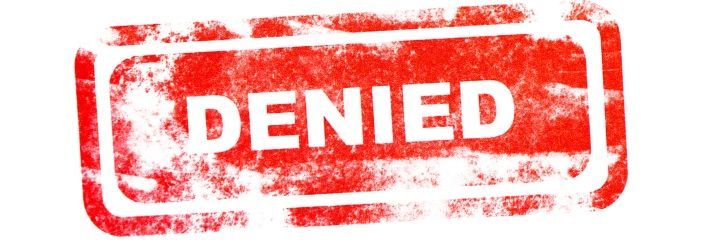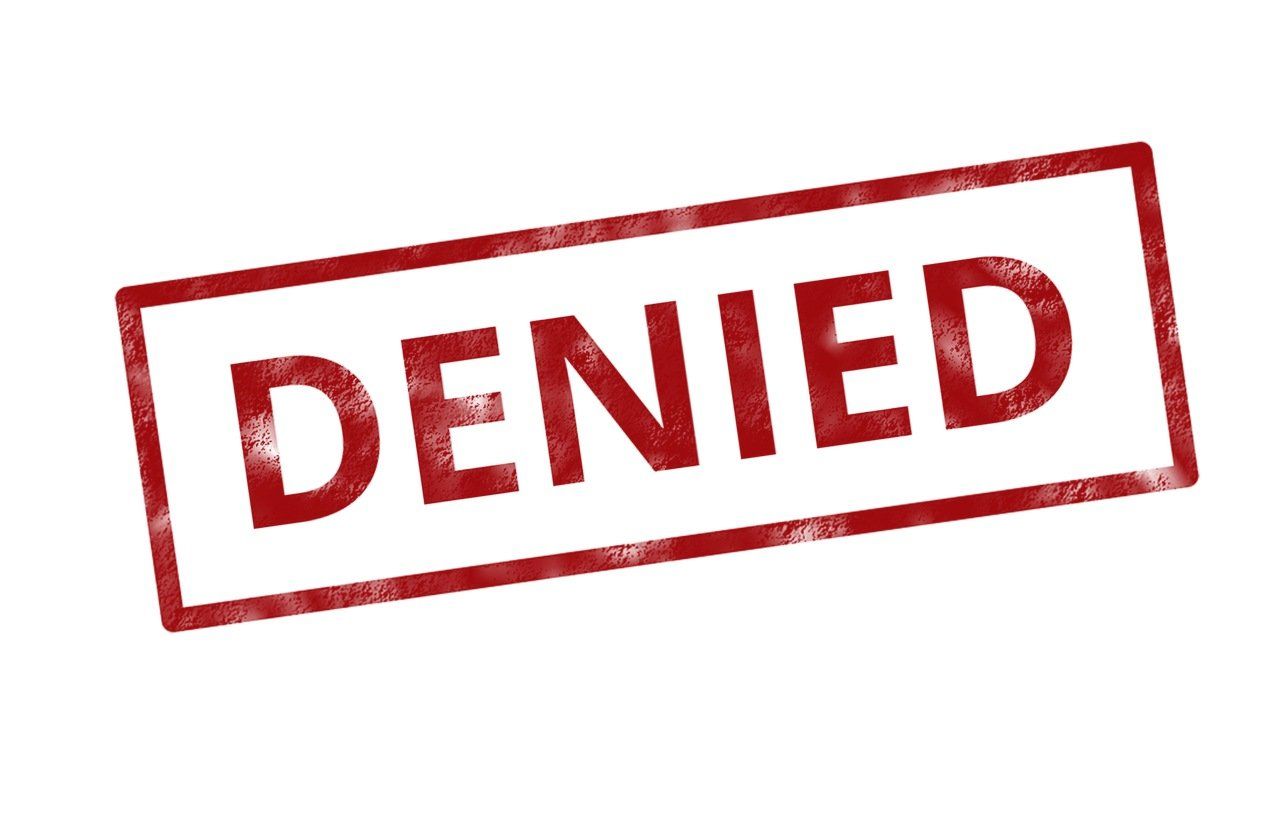Last Updated: April 5, 2024
Why Your Application Get Denied

Disclaimer: We are not qualified legal or tax professionals and are not giving advice. Always speak with a qualified professional before making any legal or financial decisions.
Seeking a loan with bad credit can often feel like navigating through a maze, where each turn might lead to a rejection. Understanding why bad credit loan applications get denied is the first step to reversing your fortunes.
From the impact of your income stability to the nuances of your credit score, we dive into the top reasons behind these denials and how you can pivot towards loan approval success. Whether it's refining your application details or boosting your financial health, this guide will arm you with the knowledge to improve your loan approval odds.
Not in the mood to read the article? Connect instantly with a debt specialist by clicking here for a free consultation.
#1 You don't have a steady income
One of the main reasons bad credit loan applications get denied is not having enough steady income. This means you are not employed full-time and need bad credit loans to cover a certain period of time.
If you have had bad credit loan requests in the past be denied, then it is safe to assume that they will also be denied now as well. This may be because your bad credit history includes bankruptcy or defaulting on other debts like student loans.
In order to be approved for a bad credit loan, the borrower must demonstrate a stable income or good credit score so that the lender can decide if the potential borrower is financially responsible enough to handle their loans responsibly and pay them back on time.
Lenders use your debt-to-income ratio (DTR) to determine your capacity to borrow. This ratio calculates how much you owe versus how much you earn; it reveals so-called "leverage."
What's a Good Debt-to-Income Ratio?
Experian recommends that your DTR should be less than 45% in order to get approval for these types of loans; this means that only about two-thirds of your income goes towards paying debts like loan repayments, and the other one-third can go towards savings and spending.
#2 You're not employed at the moment
Another major reason for getting denied is because you are not employed. Lenders want to make sure you will be able to pay the loan back so they generally require you to be employed.
If you are unemployed, you need to show a bank why your no income situation is only temporary and that you will be able to get back on your feet very soon.
You will likely need to be employed and able to prove that you can pay the loan back. The lender will think you are too much of a risk to pay back the loan, and your loan application will get denied.
#3 Your credit score is too low
The third reason why bad debt loan requests go unanswered is due to their low level of "creditworthiness." This generally has something to do with having too many outstanding balances versus available lines of credit (i.e., being maxed out).
If your credit score does not meet the requirements for bad credit lenders, then bad credit loans will not be an option for you. That is why it's so important to check your credit score and make sure it meets the minimum requirement.
Generally, bad credit loan applicants need a score of 650 or higher to qualify.
The importance of a good credit score
A bad debt loan application will likely be rejected if you have a bad credit score. Although there are bad credit loans for people with poor credit, your chances of getting approved are much lower than for someone who has great credit and pays everything on time.
That's why it's crucial that when applying for a bad debt loan you check your credit ratings before submitting anything to the lender as this could be the difference between being qualified or not.
How can I find out my credit score?
You can access all three major bureau reports from Equifax, Experian, and TransUnion by visiting annualcreditreport.com - but be wary that these agencies can charge an additional fee to view your credit report.
If you need a bad debt loan and don't have the best credit, then be sure to check your ratings before submitting anything.
Without checking your eligibility beforehand, it can lead to frustration as well as not qualifying for any bad debt loans whatsoever.
Don't skip this step! Going in blind will increase the chance of being denied or having an even lower interest rate if approved - bad debt loans.
This is because lenders believe that people who are more financially responsible are less likely to default on their payments.
Read here to learn Why Your Equifax Credit Score is Lower than TransUnion
Checking Your Credit Score
Before applying for any loans, it's crucial to check your credit score across all three bureaus to understand your creditworthiness. Many bad debt lenders will require a minimum score between 600-650. Reviewing your full credit reports is also important to check for any errors that could be weighing down your score. If you see mistakes, dispute them with the credit bureaus right away.
Rebuilding Your Credit Score
If your credit score is too low to qualify for a loan take actions to boost it over time.
- Get a secured credit card and use it responsibly
- Become an authorized user on someone else’s established card
- Pay down existing balances and credit utilization
- Limit new credit applications to avoid too many hard inquiries
- Dispute any errors on your credit reports
With diligence and smart credit habits, you can rebuild and improve your score.
Alternatives to High-Interest Loans
Before taking out a potentially predatory loan, make sure you have exhausted all other borrowing options first.
- Borrowing from friends/family members
- 401k/retirement account loans
- Credit card financing (if possible based on your credit)
- Payday alternative loans from credit unions with better terms
- Payment plans directly with your creditors
- Enrolling in a debt management program
While not always easy to obtain, these alternatives may help you avoid very high-interest rates and vicious cycles of debt.
Understanding Predatory Lending Practices
It's also important to educate yourself on predatory lending practices when searching for personal loans. Payday loans, title loans, and bad credit installment loans often come with APRs over 100% - meaning you'll pay back double or more what you originally borrowed. These types of loans can trap borrowers in cycles of debt and further damage credit scores. Before taking any loan, read all fine print carefully and make sure you can adhere to repayment terms without further financial burden. Consider all other options or meet with a nonprofit credit counseling agency if you are struggling with high-interest debt.
FAQs
Conclusion
If you want to get approved for a bad credit loan, make sure your credit score is higher than 600. It's also important that there are no late payments on your credit report and that the length of time between each payment stays consistent.
Lastly, it’s crucial not to have any loans in collections or more than one loan at once. These factors should help anyone who wants a bad credit loan request be accepted by their lender!
To go over options for addressing debt or loans without damaging your financial health long-term, schedule a free debt relief consultation.
*Disclaimer: Pacific Debt Relief explicitly states that it is not a credit repair organization, and its program does not aim to improve individuals' credit scores. The information provided here is intended solely for educational purposes, aiding consumers in making informed decisions regarding credit and debt matters. The content does not constitute legal or financial advice. Pacific Debt Relief strongly advises individuals to seek the counsel of qualified professionals before undertaking any legal or financial actions.
Reduce Your Credit Card Debt By Up to Half

BBB Reviews | 4.9/5.0 Rating









 Do Not Sell My Personal Information
Do Not Sell My Personal Information